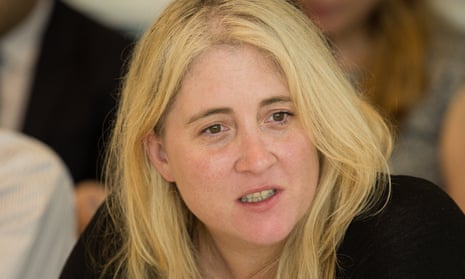One of the country’s biggest childcare charities, which provided thousands of low-income families with nursery, after-school clubs and parenting services, has collapsed.
4Children, which was the government’s official Early Years strategic partner, went into administration after a rapid corporate expansion fuelled by private loans unravelled in the face of government cuts.
Charity leaders blamed the collapse of 4Children, a respected and nationally recognised charity, on an increasingly tight financial environment for charities delivering council-funded services and described it as a a warning sign to ministers about the sustainability of children’s services in a competitive public sector marketplace.
Kathy Evans, the chief executive of Children England, which represents children’s charities, said the closure of one of the sector’s biggest names had surprised many. She said: “The serious financial fragility of the children’s services ‘marketplace’ is a very real and urgent problem, for large and small organisations alike.”
Imelda Redmond, who was brought into 4Children as chief executive just over a year ago, said that although massive financial losses had been brought under control in recent months the board felt the charity was not viable in the long term. “When we looked at the horizon it looked too precarious,” she said.
The rapid expansion of 4Children was overseen by Redmond’s predecessor, Anne Longfield, who left 18 months ago after being appointed children’s commissioner for England by the former education secretary Nicky Morgan.
Longfield said in a statement on Friday: “When I handed over the reins of 4Children after over 20 years leading it alongside an extraordinarily committed group of trustees, I considered it to be in good shape with a positive future ahead.
“Times are tough for charities though and it’s right that they work together and merge services so that they minimise risk and reduce back office spend in order to provide the best possible support in as cost-effective a way as possible, and I understand their decision to do this.”
The closure will come as a blow to the government, which needs a stable childcare market to help deliver its employment and poverty agenda. Ministers have promised to double free childcare from 15 to 30 hours for working parents of three- and four-year-olds from 2017. However, critics warn that childcare providers cannot afford to take on the extra demand.
Neil Leitch, chief executive of the Pre-school Learning Alliance, said: “The collapse of [4Children] should serve as a stark reminder to government of what can happen when childcare providers are no longer able to remain financially sustainable, a challenge facing many – large and small – across the country due to a continued lack of adequate funding.”
Redmond said the impact of the closure this week was softened by a decision taken four months ago to wind down the charity in an orderly way and arrange for other organisations to take on its contracts, a process overseen by the DfE.
As a result, all but three of its 151 different sites had moved into new ownership last week, reducing disruption to families and minimising the number of redundancies. Of 1,068 4Children staff, 46 have lost their jobs as a direct result of the collapse.
The charity Action for Children has taken on the bulk of the contracts, which are mainly let by local authorities. Other services have been moved back under council control.
However, the news came as a shock to parents, and angry messages were left on the charity’s website after families arrived at centres last week to find the doors locked.
One parent said: “You haven’t given my girls a chance to say goodbye, they will never understand why they cannot return to their nursery, a place they felt so happy. In fact, I cannot think of a more disruptive, unsettling and hurtful way you could have done this.”
All but one of those services have since found new owners and will reopen from Monday.
A spokesperson for the Department for Education (DfE), which had funded 4Children to the tune of over £7m during the past five years, said: “We are working closely with 4Children and Action for Children to make sure that disruption is minimised for children and families. We are confident that Action for Children will successfully deliver our work with the early years sector, and no public money will be lost as a result of this transition.”
Action for Children’s managing director of operations, Carol Iddon, said changes required to sustain the services in future included the possibility of introducing or raising childcare charges. She said that although Action for Children was confident it could make the services viable, there could be no long-term guarantees. “It’s a competitive market, and challenging market, and 4Children were not the only charity facing these kinds of challenges,” she added.
The demise of 4Children follows the high-profile closures of Kids Company, and the adoption charity BAAF in August 2015.
Questions are being asked about the suitability of private finance in a market where council childcare spending has been cut so deeply that charities are unable to make a sufficient financial margin to repay interest on loans, despite ratcheting down costs and wages and making widespread use of zero-hours contracts for staff.
4Children embarked on its rapid expansion plan under Longfield in 2011, more than doubling income to £30m within four years after an aggressive pursuit of council contracts. “It went hell-for-leather. They were not market-averse; they had a capitalist view of how to do business,” one sector insider told the Guardian.
In October 2014, it raised £1.7m in loans to fund the plan, including £700,000 from Big Society Capital, the body set up by former prime minister David Cameron to encourage charities delivering public services to adopt a more commercial and business-like approach to capital funding.
HSBC bank loaned £1m to 4Children as part of the deal, which was brokered by FSE Group. It was trumpeted at the time as a way of attracting investment into charities normally unable to secure private finance. FSE said the loans would promote “a financially sustainable future for the charity”.
4Children declared soon after that it was “now considered as the pre-eminent children’s charity”. Within months, however, Longfield had left to become children’s commissioner, and the charity admitted in its annual accounts for the year to the end of March 2015, that its financial performance was “not satisfactory”.
It had run up a £3m loss on income of £30m, and drained its financial reserves. “Economic conditions continue to be difficult and we have not responded as well as we would have liked to that environment, particularly in not making the savings required in delivering and supporting our services,” it said.
Cliff Prior, chief executive of Big Society Capital, said: “Since 2012, Big Society Capital has made 50 investments, working with our fund managers and co-investors to bring more than £270m to over 300 charities and social enterprises. Unfortunately, not all of these organisations are successful.
“We always explore how we can learn from failures and we are working to develop principles of best practice with our fund managers and co-investors.”





